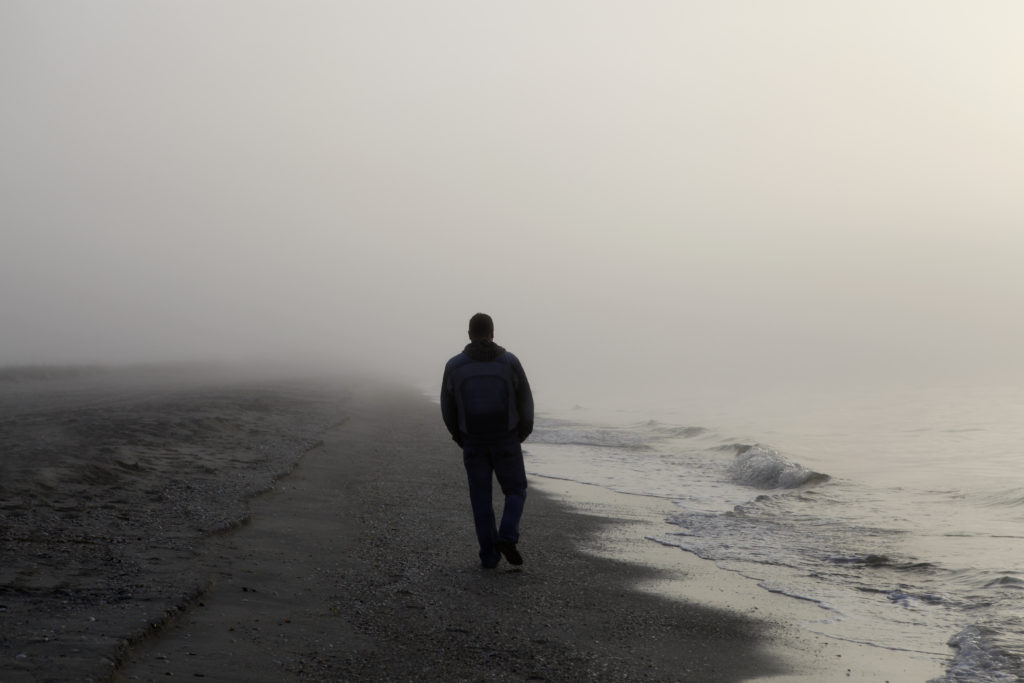I have come to bring fire on the earth, and how I wish it were already kindled!”
— Luke 12:49
Probably the most well-known quote from St. Augustine is: “Our hearts are restless till they find themselves in Thee.”
Our initial conversion, the first true surrender to God, does bring an ineffable peace, a resting place, the knowledge that we have at last found our One True Home.
Then we realize that’s just the beginning. Now we’re presented with a whole new set of responsibilities and challenges. And that tends to bring a whole other kind of restlessness.
As the late Monsignor Lorenzo Albacete noted in “Cry of the Heart: On the Meaning of Suffering” (Slant Books, $16):
“Emmanuel Mounier, the founder of the French ‘personalist’ philosophical movement, wrote that the most important aspect of human life is a ‘divine restlessness’ in us, a divine ‘lack of peace’ within our hearts. It is a permanent search for the meaning of life, an interest imprinted on ‘un-extinguished souls,’ on those who are not paralyzed by temporary satisfactions or ideological answers to all human questions. Indeed what makes our lives truly human is the ceaseless questioning before Mystery, before ‘something greater,’ whether we are three or ninety-three years old. This questioning allows us to see even everyday sights with the same amazement and wonder we felt the first time we saw them and to keep our hearts awake to the world around us.” Along the same lines, modern dance doyenne Martha Graham once observed: “There is a vitality, a life force, a quickening that is translated through you into action, and there is only one of you in all time, this expression is unique, and if you block it, it will never exist through any other medium; and be lost. The world will not have it. It is not your business to determine how good it is, not how it compares with other expression. It is your business to keep it yours clearly and directly, to keep the channel open. … No artist is pleased. There is no satisfaction whatever at any time. There is only a queer, divine dissatisfaction, a blessed unrest that keeps us marching and makes us more alive than the others.”
Artists seem especially prey to this divine dissatisfaction.
“I want to seize fate by the throat,” said Beethoven.
Matisse, the French painter who designed the famous chapel at Vence for a convent of Dominican Sisters, observed: “If one was happy, one wouldn’t paint. … In the morning, to begin the day well, I have to feel like killing someone.”
Søren Kierkegaard, the Danish philosopher and father of modern existentialism, sacrificed marriage, as he saw it, in order to devote himself full bore to his vocation of loneliness. “What is a poet?” he once asked. “An unhappy man who conceals deep torments in his heart, but whose lips are so formed that when a groan or a shriek streams out over them it sounds like beautiful music.”
Van Gogh, always more willing to go without food rather than paint, once lived for four days on 23 cups of coffee, “because I was wild to see my pictures in frames.”
One of my favorite stories about AA co-founder Bill Wilson — as told by Robert Fitzgerald, S.J. — further illustrates the point.
The year was 1940. Bill and his wife, Lois, were renting a small room above the 24th Street AA Club in New York. Things weren’t going well. People who’d put together some sobriety were getting drunk again. The organization was in dire financial straits. A nationally known baseball player had broken AA’s tradition of anonymity by giving a story about his recovery, complete with full name and photograph, to a well-known newspaper.
At 10 p.m. one night, Tom, the maintenance man at Bill Wilson’s cold-water flat, announced the unexpected arrival of “some bum from St. Louis.” Another drunk. Wearily, Bill said, “Send him up.”
Father Fitzgerald writes:
“As the man shuffled to a wooden chair opposite the bed and sat down, his black raincoat fell open, revealing a Roman collar. ‘I’m Father Ed Dowling from St. Louis,’ he said. ‘A Jesuit friend and I have been struck by the similarity of the AA twelve steps and the Spiritual Exercises of St. Ignatius.’ ‘Never heard of them.’ Father Ed laughed. This endeared him to Bill.
Robert Thomsen tells the rest of the story this way in his biography, “Bill W” (Hazelden Publishing, $13.74).
“The curious little man went on and on, and as he did, Bill could feel his body relaxing, his spirits rising. Gradually he realized that this man sitting across from him was radiating a kind of grace...
“Primarily, Father Ed wanted to talk about the paradox of AA, the ‘regeneration,’ he called it, the strength arising out of defeat and weakness, the loss of one’s old life as a condition for achieving a new one. And Bill agreed with everything…
Soon Bill was talking about all the steps and taking his fifth step (telling the exact nature of his wrongs) with this priest who had limped in from a storm. He told Father Ed about his anger, his impatience, his mounting dissatisfactions. ‘Blessed are they,’ Father Ed said, ‘who hunger and thirst.’
“When Bill asked whether there was ever to be any satisfaction, the priest snapped, ‘Never. Never any.’ Bill would have to keep on reaching.”
Won’t we all.

